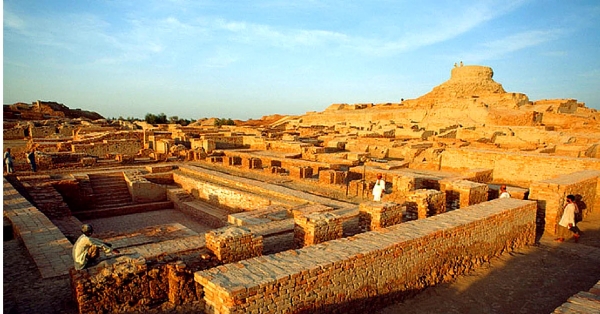Vishwaguru Bharat 14: Ancient Indian traces of 'Local Governance' & the satire of 'White Man's Burden'
The origins of local governance in India can be traced back to the ancient republics and village assemblies that existed during various periods in Indian history.
Total Views |
Local governance in India has a rich history that dates back to antiquity. The concept of decentralized administration and community-based decision-making is deeply ingrained in Indian society. The final article of the series 'Vishwaguru Bharat' explores the earliest references of local governance in India, shedding light on ancient administrative traditions that laid the foundation for the decentralized systems observed in the country today.

Ancient Republics and Village Assemblies
The origins of local governance in India can be traced back to the ancient republics and village assemblies that existed during various periods in Indian history. The concept of "Sabha" and "Samiti," denoting community gatherings and assemblies, respectively, can be found in Vedic texts such as the Rigveda. These gatherings served as platforms for discussing matters of local importance, making decisions, and resolving disputes.
Saraswati-Indus Civilization: Traces of Early Local Governance
The Saraswati-Indus Civilization, one of the world's earliest urban cultures, provides glimpses into the early forms of local governance that existed in ancient India. While not extensively documented, archaeological findings and studies of this civilization offer insights into how early communities managed their affairs and maintained order.
Mauryan Empire: Administrative Innovations
One of the earliest references to organized local governance can be found during the Mauryan Empire (c. 322-185 BCE). Emperor Ashoka's inscriptions indicate the presence of officials known as "Rajjukas" or "Dhamma Mahamatras" responsible for ensuring justice and morality at the local level. These officials played a role in supervising local administration and ensuring the welfare of the people.
Kautilya's Arthashastra: Administrative Wisdom
The "Arthashastra," a treatise attributed to Chanakya (also known as Kautilya), provides insights into the administrative practices of ancient India. It emphasizes the importance of local administration through a well-structured hierarchy of officials responsible for governance at different levels. The concept of "Paura" or urban administration and "Janapada" referring to territorial divisions is evident in this treatise, reflecting a system of decentralized governance.
Gupta and Chola Empires: Local Autonomy
During the Gupta and Chola empires, local governance systems continued to evolve. Inscriptions from the Gupta period indicate the presence of local officials responsible for revenue collection and maintaining law and order. The Chola dynasty's administration was characterized by a well-organized system of local self-governance, with village assemblies and local councils playing a pivotal role in decision-making and dispute resolution.
Panchayats: Grassroots Democracy
The institution of Panchayats, or village councils, emerged as significant centers of local governance in ancient India. Panchayats were composed of elected representatives from the community, and they played a vital role in the administration of justice, land management, and community welfare. These assemblies reflected the spirit of grassroots democracy and community participation in decision-making.
Impact on Modern Local Governance
The earliest references to local governance in India have left a lasting impact on the country's modern administrative framework. The idea of community-based decision-making, accountability, and representation continues to influence contemporary local governance structures. India's Constitution recognizes the significance of local self-governance through the provision of Panchayats and Municipalities as institutions of self-governance in rural and urban areas, respectively.
When we study Indian history, during modern period we see European rulers, particularly the British, landing in India to take control of Indian resources. The justification that the British gave to their heinous acts was that they had landed in India to civilize the uncivilized countrymen on India. Having local governance in itself is a very 'civilizational' phenomena. The fact that local governance existed in India as early as during the Saraswati-Indus Civilization is actually an eye-opener to every single person who believes the 'White Man's Burden Theory'.
“India has lost its glory because of the ignorance Indians have shown towards their own legacy. India has lost its glory because Indians blindly accepted the western narrative of their own country. In order to reclaim India's lost prestige, it is important to head back in history and understand the story of 'Bharat' and not 'India'.”
--


